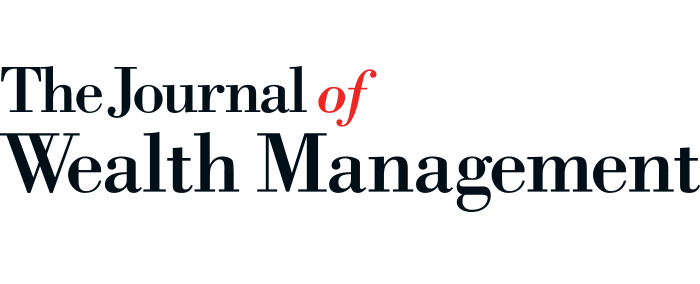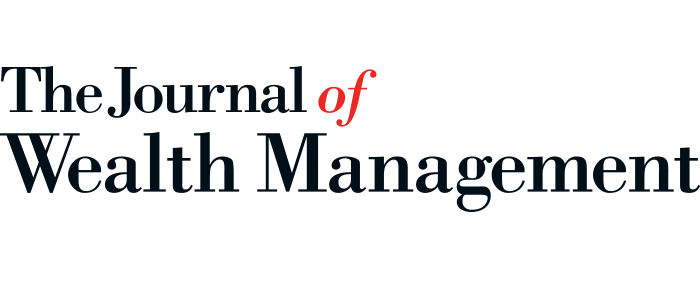Submit An Article
Welcome to our online article submission process via Open Journal Systems (OJS). OJS enables you to submit an article electronically by following the guidelines below. If you have any questions, please contact Sophie Shorland at sophie.shorland@pm-research.com.
Click here to SUBMIT AN ARTICLE
Upon submitting your research, you and any sub-authors give us permission to contact you regarding article permissions, relevant research and further analysis from our portfolio. You can opt out of these communications at any point via the preference center at the bottom of every email.
Journal Contact
Jean L.P. Brunel
Email: jean@brunelassociates.com
Paul Bouchey
Email: Paul.bouchey@gmail.com
The Journal of Wealth Management (JWM) Content Guidelines
The Journal is designed to be a forum to explore investment issues relevant to individual investors, that is, people who invest as principals, rather than agents, directly or indirectly through companies, trusts, or foundations. Its target audience comprises individual investors, professionals within a family office or foundation, discretionary investment managers, financial advisors, consultants, trust and estate specialists and academics. Articles should be on topics of interest to a broad audience of practitioners, and written in a clear and accessible style. While colorful language and examples are encouraged, strict standards for consistency and correctness of theoretical reasoning do apply.
The following is a sampling of topics on which submissions are encouraged:
- Behavioral Finance: the way risk is perceived and measured
- Investment Policy –– Formation: issues of asset allocation and selection in the context of maximizing after-tax wealth
- Investment Policy Execution: the impact of tax-awareness on a manager stable comprising different styles and products
- Tax-Aware Investing: issues of maximization of after-tax wealth and optimization frameworks
- Interdisciplinary Issues: the interplay between investment and estate planning
- Performance Measurement: how after-tax returns are computed, assessed, or measured
Download Article Submission Guidelines
Code of Ethics
Standards for Publication Ethics
Portfolio Management Research (PMR) is committed to abiding by ethical standards and best practices in its publication of articles of the highest quality. As part of this commitment, PMR strives to uphold the standards of the Committee on Publication Ethics (COPE). PMR believes that ethical publishing requires the active participation of all parties in the process – authors, peer reviewers, editors, and the publisher – and in the pursuit of this principle, PMR expects compliance with the Standards for Publication Ethics set forth below:
Principles to which authors should adhere:
- Present original material that transparently shows the research process and fully reveals the value their research brings to the literature. To ensure originality upon publication, authors should not concurrently submit the same article or research to more than one publication.
- Ensure that any work presented as original is in fact original, which requires adding citations for all or part of any work that originated with other authors, and also adding quotation marks to any text that originated with other authors. The inclusion in an article of plagiarized text is never acceptable.
- Provide in each article sufficient detail, including the raw data used to support the conclusions made in the article, to enable professionals in relevant field to attempt to replicate the article’s findings and conclusions. Results of tests and other research should be presented in the article directly and honestly, free from falsity, fabrication, or other inappropriate manipulation. The inclusion in an article of fraudulent data or knowingly inaccurate statements is never acceptable.
- Conduct research for each article in an ethical and responsible manner that complies with relevant legislation and applicable industry rules and guidelines.
- Provide retractions or corrections to an article promptly upon discovery or notification (and verification) of inaccuracies in the article.
- Include with each article submitted for publication a complete and accurate list of reliable sources for all facts in the article.
- Disclose in each article all actual or perceived conflicts of interest, including as posed by any funding sources for the article.
- Ensure accurate attribution of authorship for each article, with all listed authors having made a significant contribution to the research and/or article, and all individuals who made a significant contribution to the research and/or article properly included as co-authors. Authors should take collective responsibility for all articles they submit and all articles they publish.
Principles to which peer reviewers should adhere:
- Review all articles objectively, without bias or favoritism based upon the origin of the article, the gender, race, national origin, ethnicity, religious or political beliefs, sexual orientation, or age of the authors, or commercial considerations.
- Review articles solely in subject areas in which they have expertise. Peer reviewers should provide the publisher with professional credentials that accurately and truthfully represent their expertise.
- Before consenting to review an article, ensure sufficient time and resource availability to complete a comprehensive assessment of the article in a timely manner.
- Decline to review articles that create a conflict of interest, or the appearance thereof, which can arise from the content of the article, its authors and/or its funders. In the event of uncertainty, peer reviewers should disclose the potential conflict of interest to the publisher and seek advice before proceeding further with a review.
- Provide reviews that are constructive and impartial, devoid of any hostile, inflammatory, libelous, unfair, or unnecessarily derogatory comments.
- During and after the peer review process, maintain the confidentiality of unpublished articles, including by refraining from discussing them with others.
- Refrain from using research or information contained in unpublished articles for any purpose, including for personal gain or for the advantage or disadvantage of any other person or organization.
- Promptly disclose to an article’s editor that the article has not properly cited its sources, or contains errors or material omissions.
Principles to which editors should adhere:
- Decide whether to accept or reject articles based solely on their scholarly or journalistic merit, which includes their importance, originality, clarity, and relevance to the journal’s mission and purview.
- Maintain objectivity and balance in the review of all articles, acting without bias or favoritism based on the origin of an article, an author’s gender, race, national origin, ethnicity, religious or political beliefs, sexual orientation, or age, or on the grounds of commercial considerations.
- Adhere to the same rules governing conflict of interest and improper use of unpublished articles as peer reviewers.
- Guide authors and peer reviewers on their responsibilities, and oversee their performance of those responsibilities, ensuring that the authors and peer reviewers understand what is expected of them.
- Adopt editorial policies that promote comprehensive, honest and ethical reporting.
- Seek assurances that research has been in conformity with the rules or guidelines of the applicable regulatory or industry bodies, while recognizing that such approval is not a guarantee of ethical conduct.
- Preserve the anonymity of peer reviewers and the confidentiality of unpublished articles.
- Pursue suspected and alleged misconduct in the research, writing, submission, acceptance and/or rejection, review, and publication process, to protect the integrity of the journal. Editors should not simply reject submissions that raise concerns about potential misconduct; they must make reasonable efforts to ensure a proper investigation is conducted and the issue resolved.
- Upon identifying errors or material omissions in an article, promptly communicate corrections, retractions and/or revisions, as applicable, to the publisher, and in the case of an unpublished article also to the author.
Principles to which the publisher should adhere:
- Uphold rigorous standards of publication ethics to maintain the integrity of the journal.
- Provide the resources and institutional support needed to publish accurate, original and important articles, including, as necessary, specialized legal counsel and review for issues of libel, copyright, and infringement.
- Ensure appropriate policies are in place to provide guidance, address and resolve editorial conflicts of interest.
- Cease publication of any content that is not in accordance with these Standards for Publication Ethics.
- Promptly publish corrections, clarifications, revisions, retractions, and apologies, if and when the need arises, and with due prominence.
- Maintain the independence of editorial decisions, which should not be altered or influenced by commercial considerations or business needs.
After the publication
An authorized, watermarked, authors copy of your article is available by request once the article has been published online. This is for archive/non-commercial purposes only. For more details on that please contact David Rowe, Commercial & Business Development Director on +1 (646) 891-2157 or D.Rowe@pmr-research.com or go to our Permissions and Reprints website.

